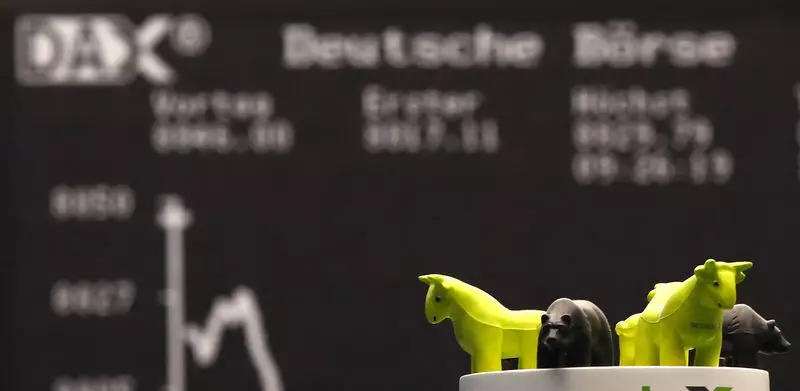As the year draws to a close, European stock markets experienced a modest decline on the final full trading day of 2024. This lackluster performance highlights a broader trend of profit-taking among investors, who appear inclined to lock in gains accrued during what has been an overall positive year for equity markets in the region. The DAX index in Germany remained nearly unchanged, while France’s CAC 40 and the UK’s FTSE 100 both recorded slight dips of 0.1% and 0.3% respectively.
The market’s muted trading behavior can be attributed to the impending New Year holiday. Many investors are either sidelined or keeping their trades minimal as they prepare for market closures anticipated for New Year’s Day, adding to the prevailing atmosphere of caution. On this trading day, the pan-European STOXX 600 index registered a minor decrease, though it is still poised to close the year with an impressive gain of approximately 5.5%.
Examining individual performances reveals a significant disparity; the German DAX stood out with a remarkable increase exceeding 19% this year. In parallel, the UK’s FTSE 100 managed a respectable rise of around 5%. Conversely, France’s CAC 40 lagged behind, down by 2.6%, illustrating a challenging economic environment for some sectors within the European market.
Inflation data released on this day added another layer of complexity for investors. Spain reported that its annual EU-harmonized inflation rate increased to 2.8% in December, showing a rise from the previous month’s 2.4%. This uptick can be indicative of underlying economic pressures that could force central banks to reconsider their monetary strategies. The European Central Bank’s recent interest rate cuts, coupled with signals of a possible future reduction, are complicated by this renewed inflationary concern.
Recent comments from ECB Governing Council member Robert Holzmann outlined a cautious approach moving forward. Despite a pause on interest rate hikes, Holzmann mentioned that the timeline for the next rate cut may be extended due to inflationary pressures creeping back into the Eurozone. This perspective aligns with the observations of a slight increase in Eurozone annual inflation from 2.0% to 2.2% in November, surpassing the ECB’s intended target rate.
In the corporate sector, sectors such as healthcare also reflected economic uncertainties. Siemens Healthineers experienced a 1% drop after the CFO hinted at a strategic review of its majority stake in a key medical technology unit, illustrating the broader unease permeating corporate decision-making amid fluctuating market conditions.
On the commodities front, crude oil prices saw a steady decline, with both US and Brent crude futures dropping by 0.1%. This downward trend reflects apprehensions regarding slowing demand in major markets, particularly China, which remains the world’s largest oil importer and has been facing its own economic challenges. The final trading day of 2024 in European markets encapsulates a year of gains mingled with caution, as investors brace for economic uncertainties that lie ahead. The dual pressures of inflation and global demand make the outlook for 2025 a subject of considerable speculation and concern.

